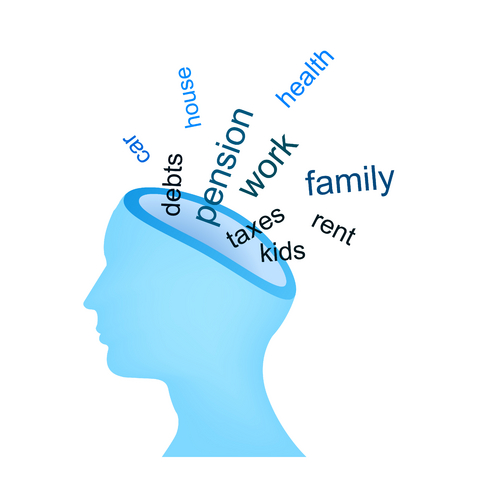MEDITATION TIP OF THE WEEK
…IS A SERIES OF SHORT, EASY TO REMEMBER, AND BASIC TIPS ON HOW TO MEDITATE. PLEASE LET ME KNOW WHAT YOU THINK, IS IT HELPFUL?
How to Use Anger in Meditation
Does Anger Ever Get Away From You
How often do you experience a situation where you can feel the anger arise, you know that it’s coming, and yet you’re not be able to do anything about it? Do you ever wish that anger didn’t have such a hold on you? Would you like to be able to work with anger so that instead of leaving you feeling helpless, it helped you to work on your meditation practice instead? Great…
For me, one of the most difficult emotions to engage my mind with is anger. I’ve even gotten better in the past few years at avoiding angry outbursts, but my anger still gets the best of me sometimes and all that I can do in those moments is to watch helplessly as my emotions take over. The only good thing about these moments is that they offer me the opportunity to find my meditative mind within the emotion of anger.
Anger Is A Powerful Emotion
Anger is a powerful emotion. It hits you in your most primitive centers of your brain and stimulates the fight or flight response before you know what’s happened. And yet, how many times after an angry outburst do you find yourself thinking, “I didn’t need to get that angry,” or, “I bet I could have handled that differently.” So, why is it so hard to control in the moment?
Think about the destructive power of anger; fights happen, road rage drives people over the edge, people will even murder in the heat of the moment at the hands of anger. Anger is a powerful emotion! But, do you ever stop to think about what you would be able to do if you were to channel all of that angry energy into into a positive force? What if you could use your anger to brighten and enliven your meditation practice? Does this sound too good to be true? Read on…
What’s Making You Angry?
In most cases, at least for me, it’s either another person or an event that causes me to lose my mind…fulness. Whether it’s a person or challenging circumstances, it’s important to ask yourself these questions:
- “Is it really the person/circumstance/whatever that’s making me angry?”
- “If I were to remove this object of my anger from the picture, would I still be angry?”
- “Are the feelings and emotions that I’m experiencing due to this object of my anger, or do they exist independently?”
- “When I hold onto my feelings of hurt, frustration, sadness, jealousy, do these feelings go away?
- And most importantly, “What’s going on in my mind that’s causing these feelings and emotions to persist?”
For myself and others, and maybe for you too, there are times when your anger feels justified, like it’s serving a purpose. And…it is! It’s letting you know that your buttons have been pushed and that your trigger has been pulled. The problem that I experience is that I can end up believing that the other person or the circumstance(s) are the cause of what’s going on in my mind and body. Wrong!
Think about this, how is the other person causing your heart to beat faster, your palms to sweat, or your breathing to change? Does that person really, really have control over your inner physiology? Absolutely…not! Nor do any of the circumstances. I mean, seriously, do you think that your slow computer, or lost wallet, or flat tire have any control over what’s going on inside your mind? Really???!
Realizing that you are in charge, and that you have the power to work with your feelings and emotions should make you feel empowered. So…
What To Do When Anger Takes Over
So, you find yourself in the middle of an angry outburst, and realize that you’ve already gone “too far.” What next?
As soon as you’ve cooled down some, or even in the middle of it if you can, separate yourself from the situation that’s triggered you and take a look at your anger. What are you feeling in your body? What’s going on in your mind? What thoughts are you holding on to? Is there a self-righteousness that you’re focusing on? What could you say to the person, if it’s a person that you’re angry with, that would express what you’re feeling while showing respect for them as well as for yourself?
As you do in your meditation practice (this is actually your meditation practice), watch your feelings, thoughts and emotions arise without holding on to them, and watch them pass out of your mind. Wow! You mean, these thoughts and emotions, these feelings and sensations aren’t that real?
As you become more familiar with this practice, you’ll notice that just sitting with whatever arises – even very strong emotions – will help to strengthen your meditation practice and the stability of your mind. Does it happen immediately? Probably not, but as you practice this more – and here’s the really cool part – you’ll notice that you come back to your “meditative mind,” or a more compassionate self, a little sooner. And that makes it all worth while.
What Does This Have to Do With Meditation
It may seem odd that I’m referring to watching your thoughts, feelings and emotions as “meditation,” but this is exactly what you learn to do when you learn to meditate. At its heart, meditation is a state of non-distraction. This means that no matter what’s arising within your mind, you don’t become distracted by it. When you get anger, what’s happening is that you’re experiencing powerful feelings and emotions within your mind and body, and you’re creating thoughts around these feelings and emotions. What would happen if you didn’t perpetuate the thoughts? What would happen if you weren’t swept away by the feelings and emotions? How would you respond differently?
Listen Up! Stay tuned for the next post in the series on how to work with anger. I’ll present an exercise on how to use a past encounter with anger as a powerful tool for meditation practice. Until then, be well in your body, speech and mind. Take care.
Resources for Working with Your Emotions
If this post was helpful to you, here’s another post that I wrote titled, “Why Meditate? Are You Tired of Being Angry, Sad, Jealous or…Exhausted?” Check it out.
Specific to what we’ve discussed here is the free ebook, How To Work With the Four Distractions. Download it and give it a read. I hope that it helps.
This site has tons of tools for learning how to meditate and be compassionate.
I encourage you to look through the HUNDREDS of articles that I’ve written and especially check out my weekly meditation tips and other useful meditation materials provided for your health and well being. Please let me know if you’d like to discuss anything with me, have any questions or need clarification regarding anything that I’ve written about.
Other Great Meditation Resources and Information:
For More Information on How to Meditate
Please view the Related Stuff below for help getting started in your meditation practice! Also don’t forget to download my free e-book, Can Meditation Change the Way that You View Your World? and download the free e-book, How to Work with the Four Distractions to Meditation and get started learning how to deal with some of the major obstacles in meditation.






Cool ! And thank you !! Personally I’ve learned that far too often the Target’ of my outburst gets the ‘Benefit’ of ammunition that was intended for another victim . And my genuine albiet misdirected tantrum leaves us both feeling confused ,defensive and even more powerless.. When I have the Courage to doubt myself or even Appologise (God forbid ) I feel a bit less isolated and able to see that I am just one tiny part of a very large family. I can even laugh at my insignificance I am relieved of a burden of my own design , and beautiful wealthy women (half my age ) chase me through the produce section waving hastily scrawled phone #s in Hot Pink lipstick …